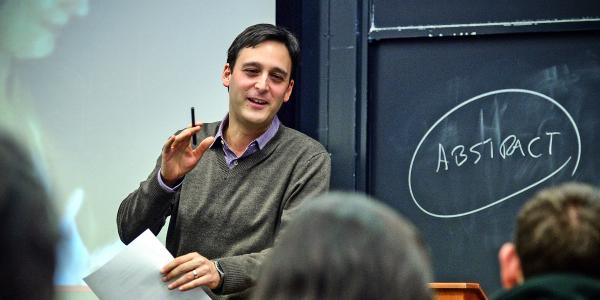

Our people are extraordinary.
Arts & Sciences has over 1,000 faculty and staff who utilize their diverse expertise in the pursuit of research breakthroughs, gaining a deeper understanding of the world's most pressing issues and serving as mentors of the next generation.
select honors from our faculty



search for faculty:

Psychological & Brain Sciences

William Acree
Vice Dean of Interdisciplinary Initiatives and Innovation

Rachel Adams
College Writing Program

Cassie Adcock
Department of History

Ama Bemma Adwetewa-Badu
Department of English

Nazmul Ahsan
Department of Economics

Jami Ake
Comparative Literature and Thought

W. Mark Akin
Department of Music

Deniz Aksoy
Department of Political Science

Mark G. Alford
Department of Physics

Tazeen Ali
John C. Danforth Center on Religion and Politics

Megan Allen
College Writing Program

Kari Allen
Department of Anthropology

Elizabeth Allen
Romance Languages and Literatures

Sachiko Amari
Department of Physics

Felix Ampadu
Department of Anthropology

Jeffrey Anderson
Department of Music

Kenneth (Andy) Andrews
Department of Sociology

Gaetano Antinolfi
Department of Economics

Nicola Aravecchia
Department of Classics

Jennifer Arch
Department of English

Raymond E. Arvidson
Department of Earth, Environmental, and Planetary Sciences

G'Ra Asim
Department of English

Costas Azariadis
Department of Economics
Recent Faculty Grants & Awards
Kevin Moeller, professor of chemistry in Arts & Sciences, recently received a nearly $1.2 million grant from the National Science Foundation. The award will support Moeller’s work with the collaborative Center for Synthetic Organic Electrochemistry.
See what our faculty are working on now
More from The Ampersand
What is the secret to healthy aging?
Want to age well? Researchers in psychological and brain sciences are exploring what helps people live better and longer.

WashU tapped for key role in future Artemis Moon missions
The university’s designation as the lead data repository for the Artemis missions builds on a long and productive partnership with NASA.

